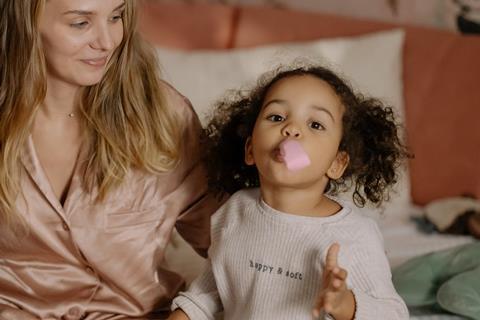Author Gemma E Asafo-Adjei explains that a woman doesn’t need a mother of her own to be an amazing parent.

The relationship I had with my mother was a good one. At first I was more of a daddy’s girl. It wasn’t really until I was in my mid 20s that the relationship between me and my mother became closer. I recall the only time we actually talked about me becoming a mother was once I got married. I always had a love for children; caring for them, teaching them, and my mother would always say things like: “You would make a good mother one day.” But really, what does this mean?
Before becoming a mother, I often asked myself questions like: “Will I be any good?”, “Will I make the right decisions?” or “How will I learn to be a mother?” These are also some of the concerns I hear now, when talking with pregnant women, or those longing to become mothers. So, who do we look to when thinking about motherhood? Do we look at celebrities and the lives they create as mothers? Do we look at our friends who have had children before us? What about our own parents; looking at how we were raised and the impact our mothers had on us? Or how about our relationships with our own maternal side?
There is no manual, or “perfect” way to raise a child.
What about looking at the mothers within our churches, or even mothers in the Bible? How did they learn how to be parents? What are the qualities they needed in this journey to motherhood? Let’s look at some examples; Mary, the mother of Jesus. She was chosen for this job but was she prepared? If we imagine Mary in today’s society, in a supermarket with her child and the young one wanders off, as a mother your natural instincts are to be anxious and distressed, and you would be frantically looking for your child. This is the story in Luke 2:41-52, and all the emotions you would expect to be feeling as a mother, Mary experienced too. Was she taught to think or feel like this? Maybe not. But the feeling of protecting, caring and loving her child came naturally without thought.
How about the story of Moses (Exodus 2:1-10)? Moses’ sister Miriam watched over him while their mother lay the baby into a basket and put him among the reeds. His sister took on the protective qualities of a mother and followed the baby down the river. She even went ahead and made sure that her mother could continue caring for Moses as he grew up. Looking at the women in this story, I would say that they all played a part in mothering the baby boy.
Just as a child enters into the world unprepared and unaware, so does a mother and we partner with them and take each day as it comes.
Taking this into modern day context for example, Moses’ birth mother gave up her child making a sacrifice out of love, knowing that she wanted better for her child. Miriam (his sister), acted as a foster carer who watched over and protected the baby through his journey and Pharaoh’s daughter, as an adoptive mother cared for and raised him as a child of her own.
I believe that whether our relationship with our mother is good, bad or somewhere in between, we carry that “mothering spirit” within us. I believe this grows through experiences, observations and conversations. We have to become intentional about living the journey of motherhood. “Train up a child in the way he should go: and when he is old, he will not depart from it.” Proverbs 22:6 KJV. There is no manual, or “perfect” way to raise a child. We grow and we learn together. We do our best to mother our children, the best way we know how. Becoming a mother is learning how to sacrifice, love, care, nurture, provide and protect. Just as a child enters into the world unprepared and unaware, so does a mother and we partner with them and take each day as it comes
Gemma E Asafo-Adjei’s book Mothering Without a Mother is available now.































No comments yet